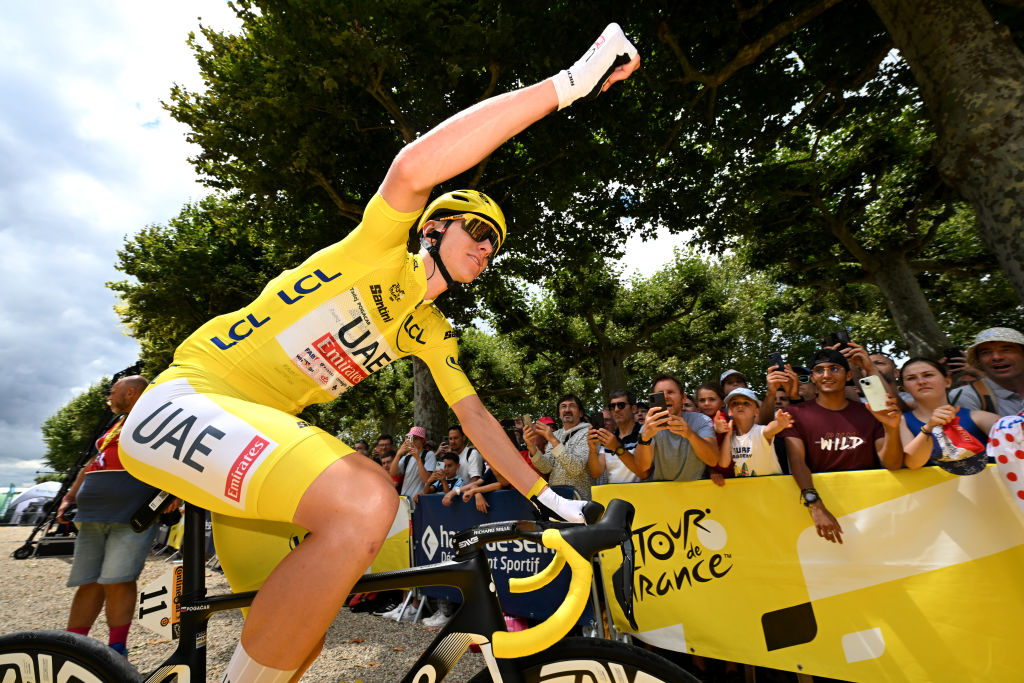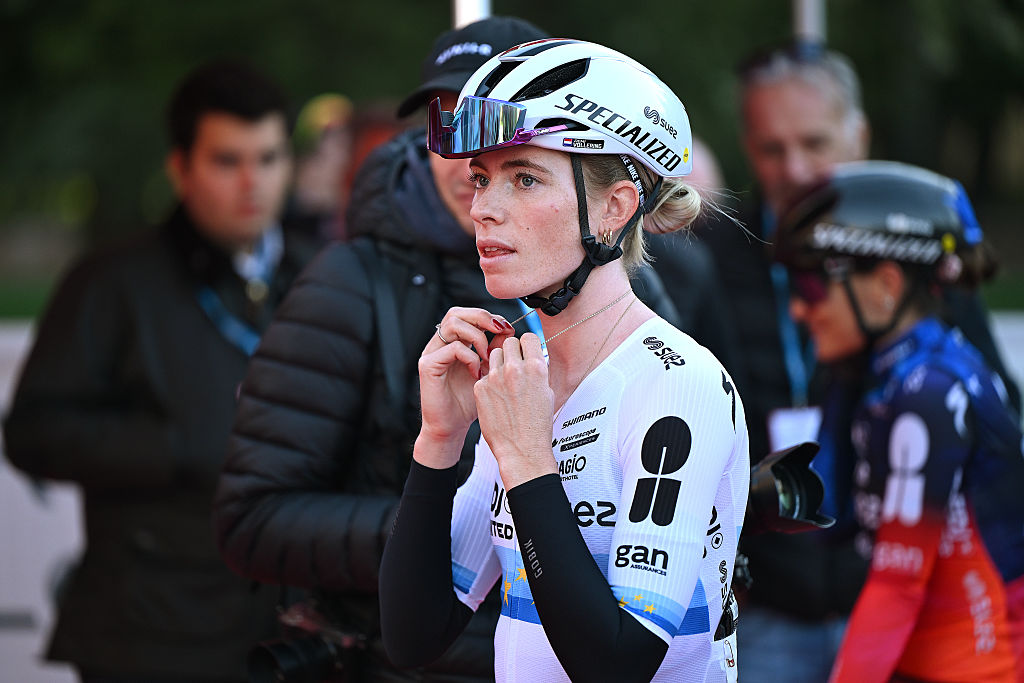'We are not obligated to attack' – Tadej Pogačar weighs up strategy as Tour de France reaches Pyrenees
Slovenian bullish about strength of UAE team despite losing Juan Ayuso to COVID-19

The latest race content, interviews, features, reviews and expert buying guides, direct to your inbox!
You are now subscribed
Your newsletter sign-up was successful
At the Tour de France start in Agen on Friday morning, most talk was of Primož Roglič's crash the previous day and the Tour de France's imminent entry into the Pyrenees the next. Outside the UAE Team Emirates bus, however, manager Mauro Gianetti warned against underestimating the task that lay immediately before Tadej Pogačar et al, namely stage 13 to Pau. "In the Tour, every day is a key day," he smiled.
There was certainly plenty to digest by the time the peloton had completed the 165km run through Armagnac country four hours later. A riotous stage began with UAE's Adam Yates slipping into a dangerous break of 22 riders. Later, Pogačar lost a key domestique Juan Ayuso, who climbed off with COVID-19, and then Visma-Lease a Bike looked to force more echelons.
For good measure, the yellow jersey Pogačar couldn't resist having a carefree crack off the sprint for a stage victory at day's end, ultimately taking 9th in a reduced bunch finish marred by a crash in the finishing straight.
"I had good legs, I was in a great position, and it's nice to have top 10 in a sprint stage," Pogačar explained in his post-stage press conference. "But don't worry guys, I was always keeping calm in the final, no stress. I was in my safe zone, in my own bubble, avoiding the hectic things and thinking with a clear head. I could see I could push for the top 10 without stress."
Yates' unexpected presence in the early move hadn't been planned, but the scenario was one Pogačar and his team welcomed given that it forced Jonas Vingegaard's Visma-Lease a Bike squad to do a little chasing. They struck back by trying to force a split of their own later in the day, though Pogačar, inevitably, never looked in danger of being caught out.
"It was a really nice stage and really fast," Pogačar said. "There was a lot of interest in going in the break, and Adam was up there. That was perfect because it meant we didn't have to spend a lot of energy."
They did, however, lose an important part of Pogačar's cadre of climbing support when an ill Ayuso brought an end to his Tour. The Spaniard had begun the day as one of four UAE riders in the top nine overall, and his absence could help level the playing field in the days ahead for Visma, who lost key figures before this race to injury and illness.
The latest race content, interviews, features, reviews and expert buying guides, direct to your inbox!
"It's a little bit a shame that we lose one guy, but I said already before that we have a very strong team," said Pogačar, who carefully namechecked each of his remaining teammates.
"Tim Wellens and Nils Politt are doing really great, and they're improving every day. They do everything, like Marc Soler and Pavel Sivakov. And Adam and João [Almeida] seem really in the shape of their lives for the climbs, so I'm not stressing out at losing one guy. It's not perfect but we will make it work."
Into the Pyrenees
The Tour de France takes on a different guise from Saturday with the race's entry into the Pyrenees, where Pogačar sets out with a lead of 1:06 on Remco Evenepoel (Soudal-QuickStep) and 1:14 on Vingegaard. Although the peloton tackled the mighty Galibier in the opening week, the bulk of the climbing on this year's route has been shoehorned into the final eight days of racing. This weekend, with its summit finishes at Pla d'Adet and Plateau de Beille, marks the first consecutive days in the mountains.
Stage 14 is just 151km in length, but it brings the race over the Col du Tourmalet and Hourquette d'Ancizan ahead of the summit finish at Pla d'Adet. The following day, the hors categorie finale at Plateau de Beille is preceded by four category 1 ascents. At this point in the game, the Tour becomes an endurance event in earnest.
"Before the Tour, I didn't really know which climbs we would have to do, but now that I know, I am happy," said Pogačar. "These are climbs that suit me well."
Attacking seems to be hardwired into Pogačar's approach to Grand Tours, but it remains to be seen if that will still be the case this weekend after his ambitious but unsuccessful escape over the Puy Mary in midweek. For a dizzying few minutes, Pogačar looked to be putting the Tour beyond the reach of everybody else, but his day had a sobering ending. Vingegaard made up a 35-second deficit on the following Col de Pertus and then beat him in the two-up sprint at Le Lioran.
"We didn't have too many climbing stages – we only had one proper climbing stage until now," Pogačar said. "We will see how the other teams will race. We can go a little bit on the defensive and maybe still take the stage win or something if we can, but not expend too much energy because we have a comfortable lead."
The comfort of that lead is all in the eye of the beholder, but keeping something in reserve will surely be a crucial element on this backloaded Tour. The race's final three days in the hinterland of Nice, where two summit finishes precede a tough final time trial, figure heavily in everybody's calculations.
"At the moment we have an advantage on GC, so we are not obligated to attack," Gianetti said. "Tadej is an aggressive rider, who likes to attack, but he knows when to attack and when he cannot. If he sees the opportunity to attack, he will take it. But it's the same for Jonas or Evenepoel. If they see an opportunity, they will take it."

Barry Ryan was Head of Features at Cyclingnews. He has covered professional cycling since 2010, reporting from the Tour de France, Giro d’Italia and events from Argentina to Japan. His writing has appeared in The Independent, Procycling and Cycling Plus. He is the author of The Ascent: Sean Kelly, Stephen Roche and the Rise of Irish Cycling’s Golden Generation, published by Gill Books.
